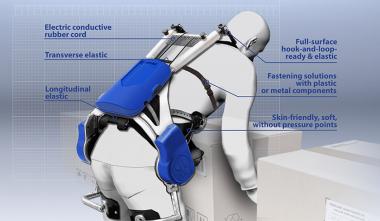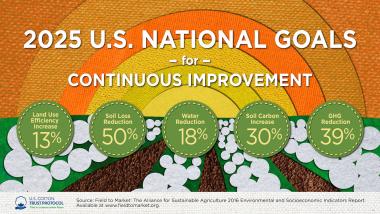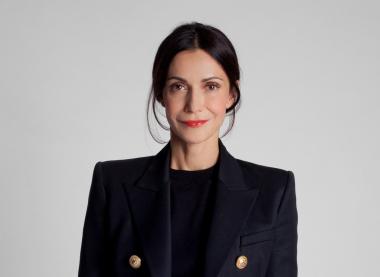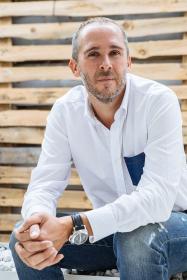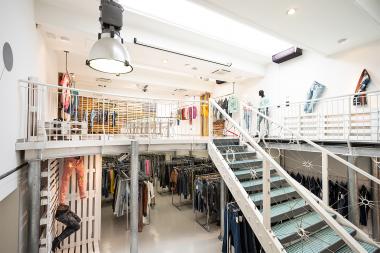Jumbo Textil: Textile solutions for Exoskeletons
Elastics for power support in medicine and the work environment
People who do physically hard work are relieved; people who are learning how to walk again after an accident or a stroke receive support; people with a handicap gain greater mobility – exoskeletons offer valuable support in many areas. An important component for "power suits": elastics by JUMBO-Textil.
Support construction with and without drive
An exoskeleton is a kind of robot that you wear: a construction of mainly textile components that is slipped over the body and strapped on. Integrated sensors register the body movements. These impulses are converted into electrically driven movements of the exoskeleton, which support or amplify the human movement. In addition, exoskeletons without drive are also being developed: these designs aim to transfer the weight of heavy tools or loads directly into the ground.
Tough requirements, individual solutions
Since the skeletons are worn on the body, the textiles and textile components used here need to be skin-friendly and as light as possible. The body's own temperature regulating systems must not be impeded. The contact surfaces must not create pressure points. And the exoskeletons must be individually adaptable to the user's body measurements.
High-tech elastics by JUMBO-Textil offer solutions for the development of exoskeletons – in terms of functionality, safety and wearing comfort: they hold, clamp, close and secure. They relieve and cushion movements and force impact. They illuminate and forward signals. The breathable narrow textiles stretch in both directions as required. They fit snugly on the body and follow every movement. Full-surface hook-and-loop-ready elastic tapes offer a simple, secure and individually adjustable fastening option. JUMBO-Textil consistently uses components made of plastic or light metal for textile components as fastening solutions. As a solution partner for demanding tasks – e.g., in occupational safety – JUMBO-Textil also developes cooled or heated textiles in collaboration with their customers. Also possible: the development of self-luminous narrow textiles – for additional safety.
(c) stotz-design.com GmbH & Co. KG


